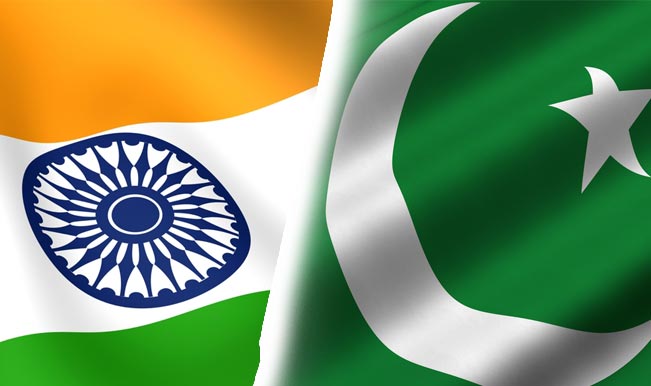
India Pakistan Wars: Pakistan is fighting a proxy war against India by indulging in terrorism in J&K because direct conflicts with India have always proved to be disastrous for it. All India-Pakistan wars have always been initiated by Pakistan. Even the proxy war which it is fighting today is not helping its cause.
Its support to terrorist outfits and continued hostility towards India has alienated it in the world’s political circles, crippled its economy and has converted it into a failed state.
In 1947, a demand for a separate nation for Muslims led to the formation of Pakistan. Contrary to the expectations of having peaceful relations between the two countries, after the partition of British India, India and Pakistan have always remained in a state of war since 1947 and Kashmir has been the root cause for most of the wars.
The inter-communal violence between Hindus, Muslims and Sikhs during partition led to the death of 5,00,000 to 10,00,000 innocent lives in the year 1947.
India Pakistan war of 1947-1948: Fought for the princely state of Jammu and Kashmir, this war is also known as the First Kashmir War. Nearly one month after the partition, in October 1947, Pakistan commenced the First Kashmir War, by launching tribals (lashkar) from Waziristan (districts of Khyber Pakhtunkhwa province of Pakistan) along with the Pakistani Army.
After the partition, the princely states of Jammu and Kashmir and Hyderabad were given a choice either to join India or Pakistan or remain independent. Although Jammu and Kashmir had a majority of Muslim population, its ruler, Maharaja Hari Singh, signed the Instrument of Accession of Jammu and Kashmir to the Dominion of India in order to receive military aid from India against Pakistan.
On 22 April 1948, the UN Security council passed Resolution 47 and hence the LOC (Line of Control) came into being. Pakistan’s ulterior motive to capture Jammu and Kashmir went in vain as India retained two-thirds of the princely state although the remaining one-third was captured by Pakistan and a formal ceasefire was declared at 23:59 at the night of January 1, 1949.
India-Pakistan war of 1965: With the largest tank battle since the World War 2 and the use of the largest armored vehicles, this war, fought in the month of April 1965, again proved to be disastrous for Pakistan. Operation Gibraltar’s (codename was given to the strategy by Pakistan) aim was to infiltrate Azad Kashmir Regular Force (Pakistan’s Army) in Jammu and Kashmir, disguised as locals, to rebel against the Indian rule.
In return, the Indian Army launched a full-scale attack on West Pakistan (currently known as Pakistan), following which a seventeen days battle was fought and India emerged victorious thereby leading to a strategic and political defeat of Pakistan. Tashkent Declaration was signed between India and Pakistan after a diplomatic intervention by Soviet Union and USA led to a ceasefire.
India-Pakistan war of 1971: This time, the issue of conflict between the two countries was different. Also known as the Bangladesh Liberation War, this war resulted in the formation of Bangladesh from East Pakistan. The conflict between the political leaders of East Pakistan (Sheikh Mujibur Rahman) and West Pakistan (Yahya khan and Zulfikar Ali Bhutto) led to the beginning of the Bangladesh War of Independence.
On 25th March 1971, in order to curb the Bengali Nationalist Movement in East Pakistan (currently known as Bangladesh), Pakistani Army carried out a planned military operation by the name of Operation Searchlight, aiming to take control of the major cities and eliminating any opposition, politician or military.
As a consequence of this operation, roughly 10 million refugees took refuge in India and Bangladesh Liberation War commenced. After several attacks from Pakistan on India’s Western Border, Indian Army retaliated by capturing around 5,795 square miles (15,010 km2) of Pakistan territory (in Pakistani Kashmir, Pakistani Punjab and Sindh sectors) but gifted it back to Pakistan as a goodwill gesture during Simla Agreement of 1972.
Hence People’s Republic of Bangladesh was formed after The East Pakistani Army surrendered to the joint forces of India and Bangladesh after two weeks of fighting. More than 90,000 Pakistani military and civilians surrendered after the war.
Kargil War: Also called as Operation Vijay in India, the war took place in Kargil district of Kashmir in the months of May and July in the year 1999.Disguised as Kashmiri Militants, Pakistani Army infiltrated on the Indian side of the LOC, which serves as the dividing line between the two states. Indian Army counterattacked by driving out the Pakistanis and two months into the conflict, Indian troops had slowly retaken most of the ridges that were encroached by the infiltrators.
Resulting in the weakening of already fragile Pakistani economy, also the morale of Pakistani forces after the withdrawal declined as many units of the Northern Light Infantry suffered heavy casualties.
No matter what happens, it is very clear that whenever war has taken place between the two countries India has emerged victorious and hopefully our Army will continue to do so in future as well.
